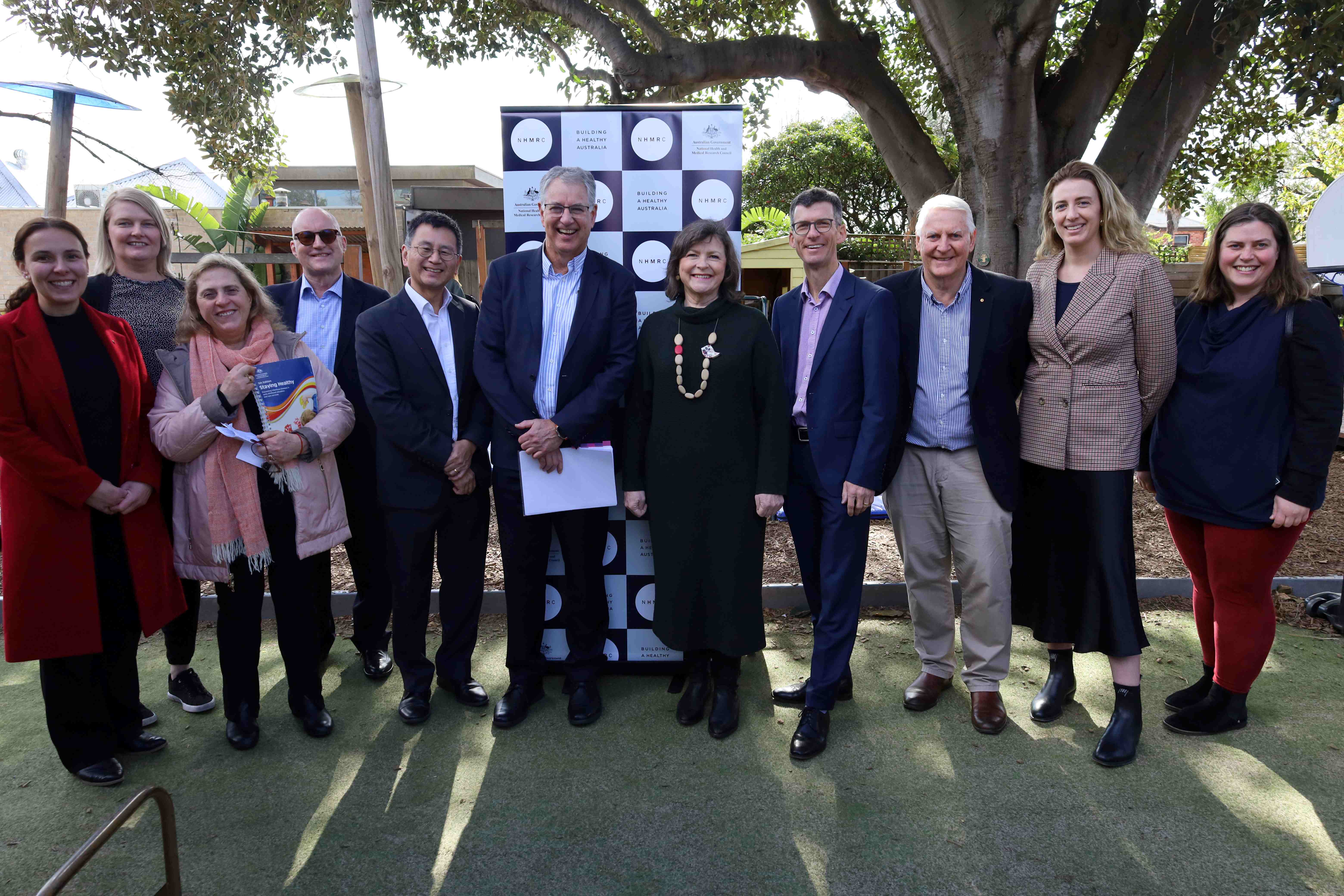Search
Showing results for "Au"

News & Events
The Kids researchers granted $5 million to prevent RHD across PacificA team led by Dr Joseph Kado from the Wesfarmers Centre of Vaccines and Infectious Diseases, based at The Kids Research Institute Australia, and The University of Western Australia (UWA) has been awarded $5 million by the Federal Government in a major push to prevent rheumatic heart disease across the Pacific.

News & Events
Latest research identifies true danger of antimicrobial resistance in Australian kidsOne out of every 10 children with a bloodstream infection are infected with a multi-drug resistant organism in the nation’s first-ever surveillance study investigating the prevalence of paediatric antimicrobial resistance (AMR).

News & Events
Australia’s first DNA-based COVID-19 vaccine study set to begin at The Kids Research Institute AustraliaAustralia’s first needle-free, gene-based COVID-19 vaccine study will be spear-headed in WA by The Kids Research Institute Australia thanks to almost $6 million in Coronavirus Research Response funding announced by Health Minister Greg Hunt.

News & Events
Latest infectious disease guidelines aim to keep childcare ‘bug-free’The National Health and Medical Research Council (NHMRC) has launched their sixth edition of Staying healthy: Preventing infectious diseases in early childhood education and care services in a bid to tackle the transmission of germs amongst young kids.
Research
Assessing the Impact of Pneumococcal Conjugate Vaccine Immunization Schedule Change From 3+0 to 2+1 in Australian Children: A Retrospective Observational StudyIn mid-2018, the Australian childhood 13-valent pneumococcal conjugate vaccine schedule changed from 3+0 to 2+1, moving the third dose to 12 months of age, to address increasing breakthrough cases of invasive pneumococcal disease (IPD), predominantly in children aged >12 months. This study assessed the impact of this change using national IPD surveillance data.
Research
Causal Impact of COVID-19 Lockdowns on the Mental Health of Australian ChildrenThis project investigates the prevalence, risk factors, and causal impact of COVID-19 lockdowns on mental health disorders, self-harm, and suicide among Australian children.

News & Events
Six-minute Strep A tests dramatically cut wait time in remote settingsChildren at risk of potentially life-threatening Strep A infections no longer have to wait five days for timely treatment, thanks to a The Kids Research Institute Australia study conducted in the remote Kimberley region of Western Australia.
Research
Mums Minds MatterAmy Jenny Susan Desiree Keerthi Finlay-Jones Downs Prescott Silva Kottampally BPsych(Hons), MPsych(Clinical), MHealthEcon, PhD (Clin Psych) BApplSci

News & Events
Meaningful moments build young brainsReading to your child is one of the easiest, most enjoyable activities you can do as a parent or caregiver.
Research
Utilising Behavioural and Sensory Profiles and Associated Perinatal Factors to Identify Meaningful Subgroups in Autism Spectrum DisorderThe heterogeneity of autism spectrum disorder clinically and aetiologically hinders intervention matching and prediction of outcomes. This study investigated if the behavioural, sensory, and perinatal factor profiles of autistic children could be used to identify distinct subgroups. Participants on the autism spectrum aged 2 to 17 years and their families were sourced via the Australian Autism Biobank.
